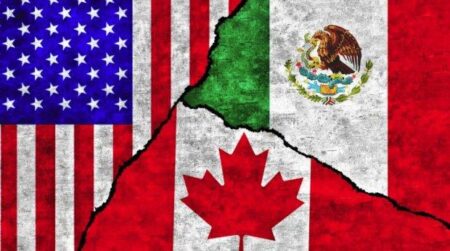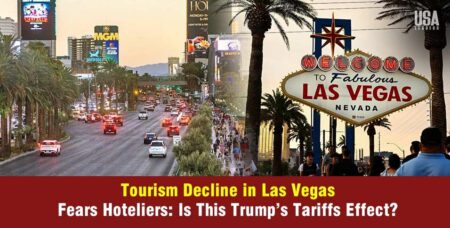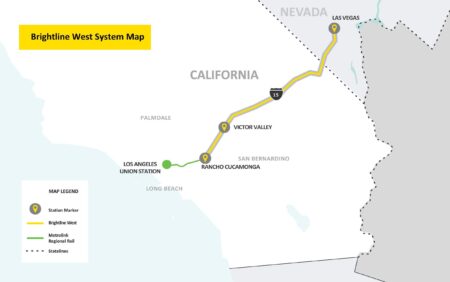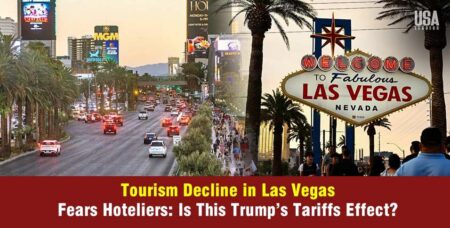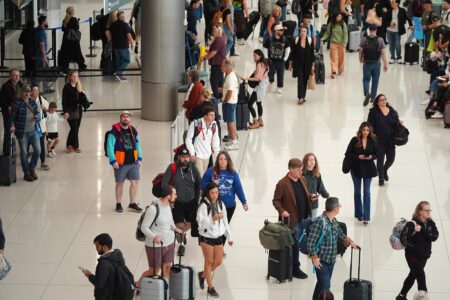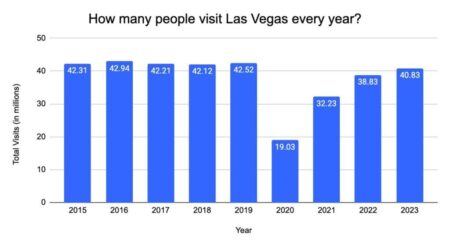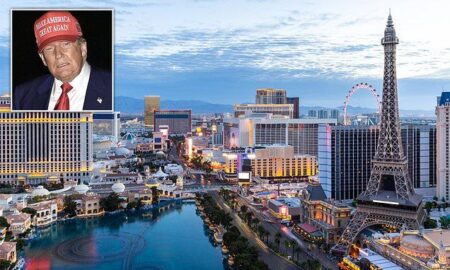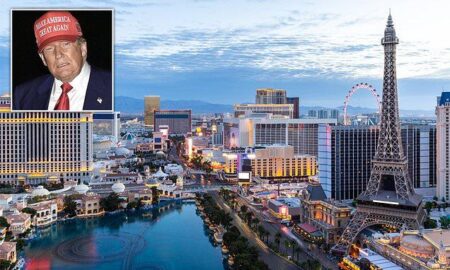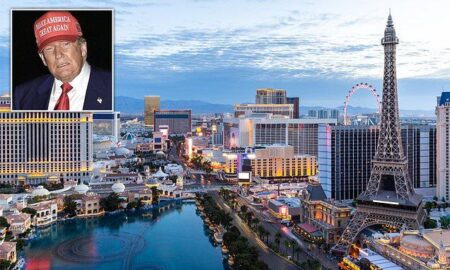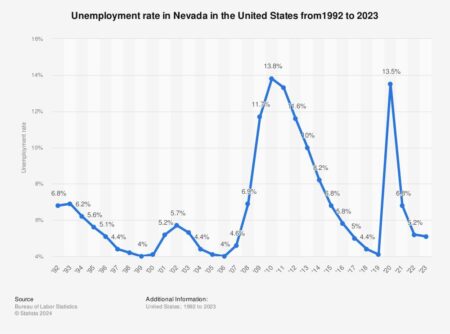A potential federal government shutdown threatens to impact Las Vegas tourism, with concerns over reduced visitor numbers and delayed services. The casino industry braces for economic ripple effects amid uncertainty.
Browsing: economic impact
Tariffs imposed by Canada and Mexico on U.S. goods may affect travel costs and consumer prices. Travelers could face higher expenses on fuel, food, and goods. Understanding these changes is crucial for planning cross-border trips.
A Las Vegas tourism trade group warns that tariffs proposed under the Trump administration could hurt the local economy by deterring international visitors and increasing operational costs for businesses.
The federal government shutdown’s impact on Las Vegas remains limited for now, with key local services unaffected. Officials monitor the situation as uncertainty continues nationwide.
Las Vegas partners with Orlando, Washington, New York, and San Francisco to strengthen US business tourism, driving unprecedented growth in the American MICE sector, new 2024-2025 stats reveal.
Las Vegas has long been a target for tourist criticism, but recent data reveals a complex picture. Despite challenges, Nevada’s tourism numbers show resilience, hinting at a cautiously optimistic outlook for the state’s economy.
The high-speed rail project linking California to Las Vegas faces rising costs. Officials are implementing measures to slow expenses and keep the ambitious transportation plan on track, NPR reports.
Las Vegas travel is experiencing a notable decline, raising concerns about broader economic impacts. Analysts warn this slump could signal a slowdown in U.S. consumer spending and travel trends nationwide.
Delays continued for the third consecutive day at airports nationwide as the government shutdown drags on, disrupting operations and frustrating travelers, NBC News reports. Officials warn of ongoing disruptions.
Tariff concerns have cast a shadow over global fashion trade shows in Las Vegas, affecting exhibitors and buyers. Industry leaders urge for tariff clarity to sustain growth amid rising trade tensions.
Visitor numbers in Las Vegas have sharply declined, raising concerns about the broader US economic outlook. The drop signals potential weaknesses in consumer spending and tourism-dependent sectors, experts say.
Las Vegas tourism is experiencing a decline, with some experts attributing the drop to Trump’s tariffs and immigration crackdown. These policies have impacted visitor numbers and local businesses, according to AP News.
Las Vegas faces an unprecedented challenge as tourists vanish from the Strip, leaving locals “freaking out.” Once booming Sin City now grapples with economic uncertainty and a troubling decline in visitor numbers.
Las Vegas is seeing a notable dip in visitors this year, attributed to rising travel costs, economic uncertainty, and changing entertainment preferences. Industry experts warn the slowdown could impact local businesses and tourism revenue.
Las Vegas tourism has sharply declined this summer, raising concerns about the broader U.S. economy. The drop in visitors highlights potential weaknesses in consumer spending and economic growth, CBS News reports.
Las Vegas faces a housing glut as an influx of unsold homes floods the market. Experts warn this surplus could depress prices and stall new construction, posing challenges for the city’s real estate recovery.
Las Vegas faces new challenges as an unusually empty Strip and declining tourist tips spotlight economic uncertainties. Experts question if the iconic city’s famed recovery is slowing down amid shifting travel trends.
Economic worries and rising tensions with Canada have led to a notable decline in Las Vegas tourism rates, industry officials report. The city faces challenges as visitor numbers from key markets continue to drop.
A Las Vegas pizza shop owner reports declining sales amid a tourism slump. Experts advise focusing on local customers, enhancing delivery options, and cutting costs to weather the slowdown and sustain the business.
Las Vegas faces a surge in unemployment, ranking among the highest in the U.S. as tourism declines sharply. The city’s recovery struggles amid fewer visitors and ongoing economic challenges, signaling tough times ahead.


